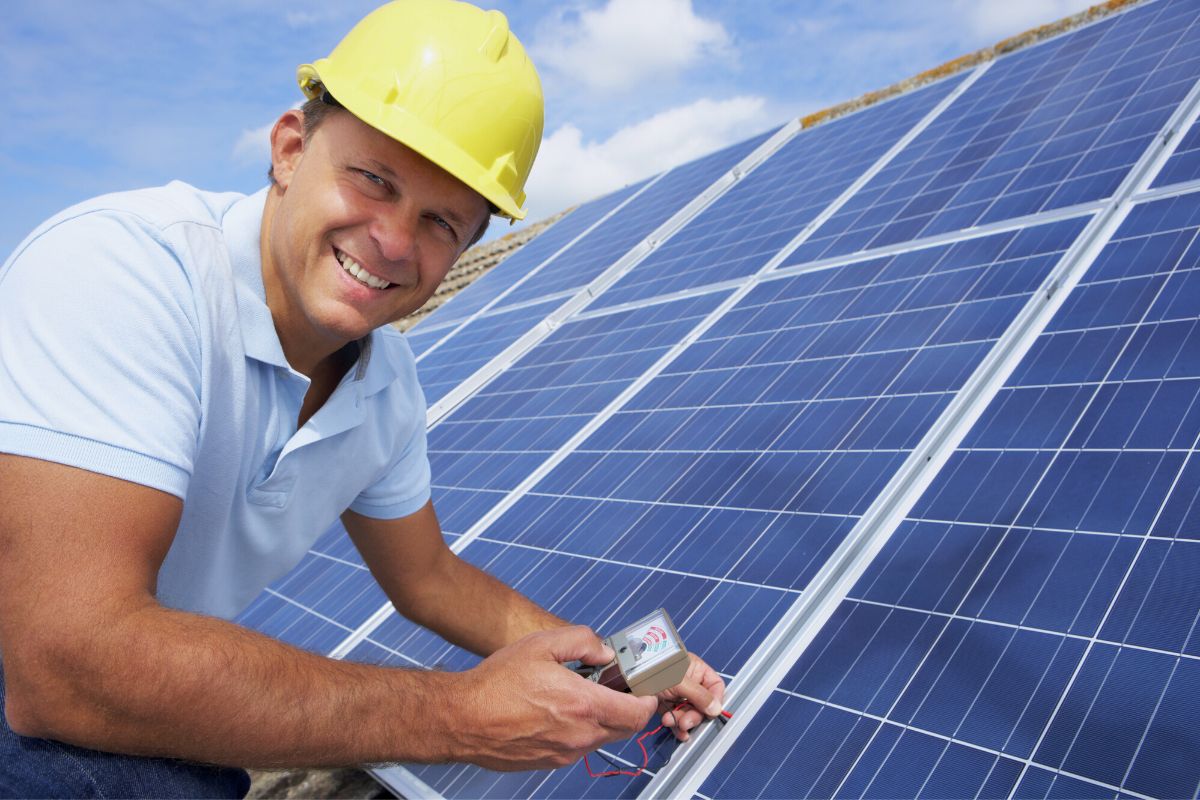How to Test Solar Panels And Make Sure They’re Working Well
Solar panels are made up of photovoltaic cells in glass with a metal frame – usually in the shape of a large, flat rectangle. These photovoltaic cells are semiconducting substances, like silicon, which are used to absorb sunlight photons, converting direct sunlight into an electric current.
The energy made from this is then converted into electricity. This can be used to power any number of lights, appliances, electrical sockets, heating and cooling systems and a range of power-generated tools in your workplace or home.
Solar panels are strong, credible equipment to generate renewable power, which is proven to be great for the environment. This renewable power has zero pollutants, greenhouse gases, emissions or carbon! Moreover, they can also be a savvy way to manage money or billing expenses if handled correctly.
How to Check If Your Solar Panels Are Working
If you’re planning on installing solar panels in your home, workplace or nearby property, read on! Solar panels can be an effective way to reduce your electricity bill as well as the environmental impact if you can work out an efficient payment plan.
However, before you invest in a solar panel, it’s crucial to be aware of what you’re getting into. Read on to learn how you can assess and finalize whether getting solar panels installed are a suitable option for your home or shop. If you are convinced this is the right move for you, the ensuing guide will walk you through the procedure of installing them and how to check if they’re working.
How Do Solar Photovoltaic (PV) Panels Work?
Solar panels work by absorbing rays from the sun during the day, turning them into energy, and converting that into direct current (DC) electricity. As most homes and businesses operate on alternating current (AC) electricity, direct current electricity goes through an inverter, converting it into usable AC electricity for tools, appliances, power outlets and more. Any unused electricity simply goes back to the electric grid and remains there.
Are Solar Panels Right for You?
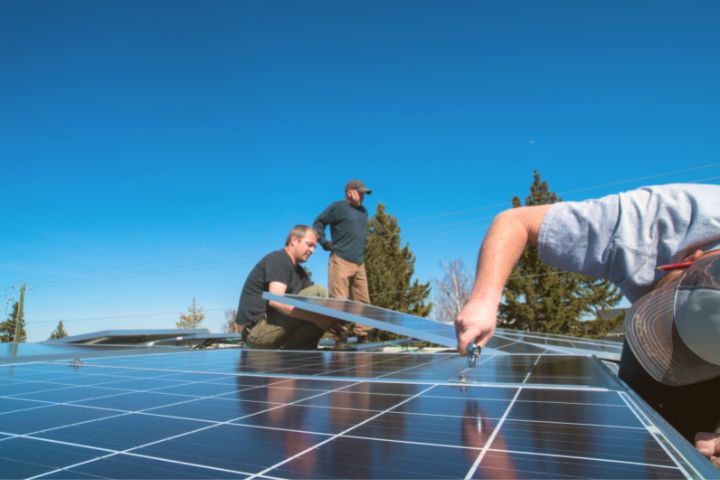
Should solar panels only be used for large properties such as factories, or can they also be used for small houses and small businesses?
The answer is yes! Solar panels can be used by homeowners and business owners – depending on the size of your home or shop and the amount of electricity consumed daily, solar panelling can help in saving you immensely on bills and be a worthy investment.
How Can I Test My Solar Panels
Getting Solar Panels Installed
When installing solar panels, there are a few things to keep in mind – these include researching the variety of solar panel installation options and choosing the style and blueprint which best aligns with your way of life.
As they require consistent maintenance, it’s better to hire a reputable installer who has experience installing solar panels. Listing down warranties and guarantees to look out for when selecting an installer is also important – after this, understand the installation process, including any necessary permits or inspections.
Testing the Panels
After installing solar panels, it’s time to check if they’re functioning properly. Here are some ways to ensure this:
- Monitor your electricity meter to verify if your solar panels are producing enough power.
- Check the inverter display to confirm if it’s working correctly and producing enough energy.
- Use an app to regularly track your solar power output in real time.
- Test your solar panels with a multimeter to measure the voltage and current output.
Are Solar Panels Difficult to Maintain?
Most solar panel installations are easy to maintain – they have a relatively simple structure of metal framing and PV panelling and require very little upkeep on a regular basis. Most solar panels can operate well over 25 years if taken care of properly.
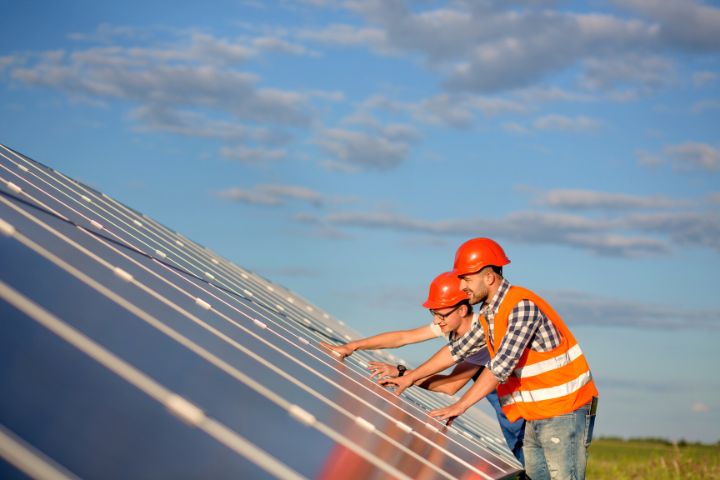
How Often Do I Need to Check on My Solar Panels?
Solar panel maintenance isn’t really required very often, but you should do frequent checks on your panelling and a thorough inspection every year. This can be done by a solar panel technician or the company that installs your panels. Most solar panel care just focuses on wiping down debris, cleaning dust, dirt, leaves.
Maintaining Solar Panels
To make sure your solar panel is working optimally, it’s imperative to regularly maintain them. Here are some tips for keeping your system in top shape:
- Perform regular visual inspections of the system by looking for signs of wear and tear or damage.
- Clean the solar panels using a soft cloth, water, and mild detergent.
- Check electrical connections for signs of corrosion or damage.
- Be aware of potential causes of damage, such as storms, animals, or debris.
What to Do If Solar Panels Stop Working
If your solar panels stop producing power, there are a few steps you can take to trace and solve the problem:
- Check the inverter and panel displays for any error messages that might indicate an issue with the system.
- Request a professional to troubleshoot the system if necessary.
- Identify and replace any defective parts that might be disrupting the system.
How to DIY Clean Your Solar Panels
If you want to clean your solar panels yourself, here are some instructions to do so in a safe and efficient manner:
- Make sure you have supplies such as soft or microfiber cloth, non-acidic water, mild detergent, bucket, ladder (if required), and safety goggles.
- Prepare the area around the panels by removing any large debris or obstructions.
- Clean the frames first, and then the coated wiring of the panels with just water and mild detergent.
- Use a soft cloth or microfiber towel with water to clean the glass surfaces of the panels.
- Rinse off the panels and dry them thoroughly before restoring power to the system.
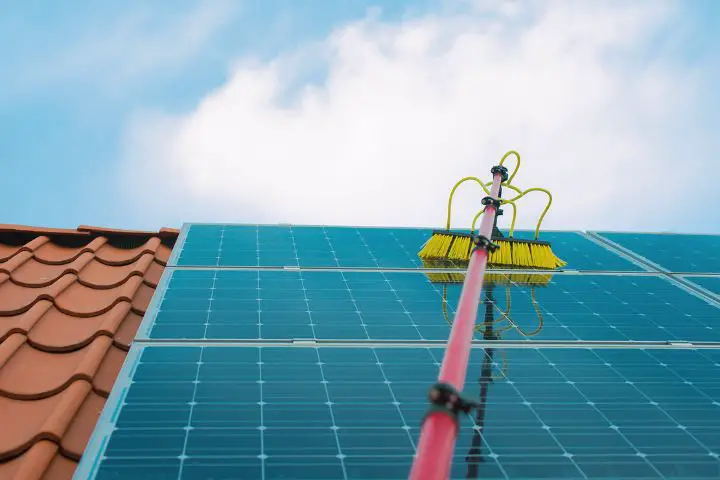
How to Repair Your Solar Panels
If something goes wrong with your solar panel, there are a few steps you can take to repair it yourself. Firstly check the system’s manual for troubleshooting tips or contact the manufacturer for advice. Then use a multimeter to test the voltage and current outputs from each panel. Finally, replace any damaged parts or wiring as needed using replacement parts from the manufacturer. If none of this works, call in the experts!
What to Know About Maintaining Your Solar Panels
It’s necessary to know how maintenance can affect the efficiency and lifespan of your solar panel. This doesn’t mean just wiping down the panel fronts. Rather, it is important to also make sure to check electrical connections regularly to be certain that they’re secure and functioning properly. You also need to know when it’s time to upgrade or replace your system if efficiency starts to decline over time.
Are Solar Panels Worth Installing?
Solar panels can be a great investment for homeowners or business owners looking to reduce electricity costs over time. Other factors are also taken into account before making this decision. This encompasses consideration of all costs associated with the installation of solar panels, equipment used in the process, and yearly maintenance. Furthermore, another incentive includes tax credits or rebates that can help offset installation costs.
Will My Solar Panels Be Damaged by Harsh Weather or Outside Conditions?
Solar panels are built strong, withstanding some extreme weather conditions of rain, snow, and dust storms. It’s far more likely that your solar energy setup may cease to work if dirt, snow or dust covers the panels, allowing for minimal sunlight exposure. While dark clouds and rain can also limit energy conversion and cause less sunlight to come through, the energy bank in the system and power outputs can make up for cloudy days.
It’s important to monitor your solar panels for consistent reductions in power output or for extended periods of low performance. This could signal a more serious issue that you would want to call a technician or your solar energy company for.
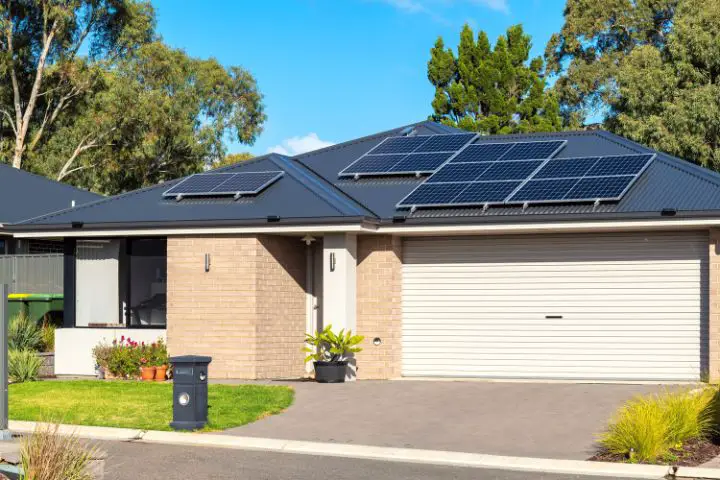
What Are the Environmental Benefits of Solar Energy?
Solar power, a renewable energy resource, has multiple benefits pertaining to the health of living organisms and also the environment.
The usage of solar panels significantly decreases greenhouse gas emissions, which are known to contribute to climate change in the form of air pollutants such as sulfur dioxide and particulate matter, that eventually lead to health-related issues.
FAQ’s
How to Decide Whether to Get Solar Panels for Your Home/Shop:
- Consider your current electricity usage and how much you plan to use in the future.
- Research different types of solar panels and what kind would be best for your home or shop.
- Look into available incentives for installing solar systems, such as tax credits and rebates.
- Calculate the cost of installation and annual maintenance.
What are the financial benefits of solar energy?
Getting a solar energy installation on your property can help you immensely with your bank account; saving money and even earning some! Your electricity bills can take a major dip with the extra energy you have stored, protecting you against soaring electricity rates in the future. Depending on the utility, solar rates and government policies, you can even sell some solar energy back to power grids or individual buyers to earn extra money as an investment.
What happens if there is snow on the solar panels?
As solar panels work by using direct current (or sunlight) and convert this into power, your panels being covered in snow may cause an issue, as the panels wouldn’t be able to produce electricity. While snow itself is not heavy enough to damage or cause any issues in the structuring or installation of your panels, it may cover the surface area if it doesn’t slide off at the angle. Snow accumulating can also cause the panels to convert less of the direct current – however, this is always easy to clean and wipe off.
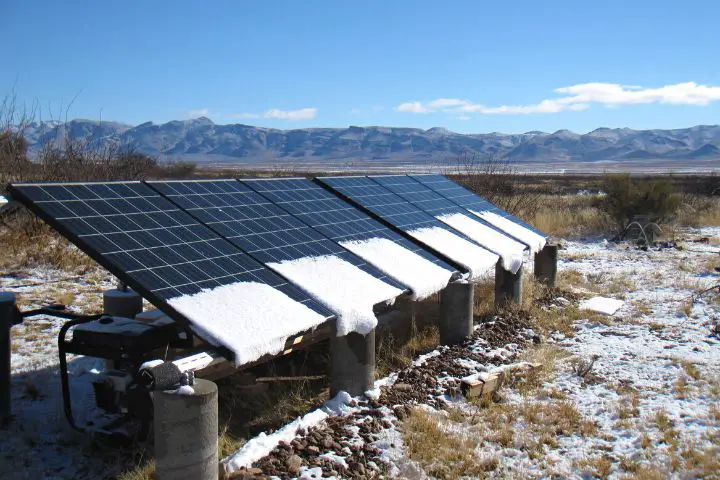
What are some solar panel options?
Solar paneling can be fitted for your roofs and for backyards with fencing!
Solar panel fences have been growing in popularity, making installing these fences a top choice for eco-conscious individuals who are seeking easy-to-maintain panel options with a pleasant aesthetic. It is important to note that depending on your property, maintenance costs and feasibility of sunlight exposure, solar panel fences may not be the best choice.
Roof panelling can be a stronger contender, as it has greater exposure to sunlight. It’s always a good idea to research more and weigh out installation plans and spacing before you make a decision.

